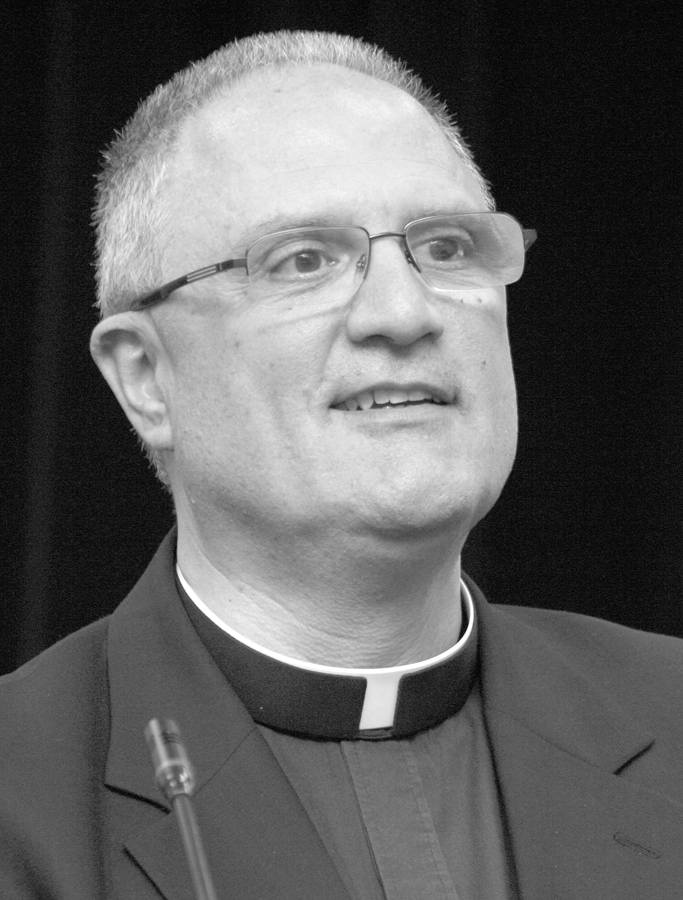
COLUMBIA–Studies show Catholic schools consistently produce higher academic results, especially in poor urban areas, and graduates are more likely to become engaged citizens and church members.
 How, then, do these crucial institutions stay afloat in the face of declining enrollments and rising costs?
How, then, do these crucial institutions stay afloat in the face of declining enrollments and rising costs?
The answer, according to Father Ronald J. Nuzzi, lies with the faithful who, if they care about Catholic schools, should show support at every level from the collection basket to the ballot box.
Father Nuzzi, a priest of the Diocese of Youngstown, Ohio, offered his perspectives at a March 28 lecture, “Why Catholic Schools Matter,” at Columbia’s Cardinal Newman School.
He is director of the Mary Ann Remick Leadership Program in the Alliance for Catholic Education at Notre Dame University.
Catholic education, he said, has changed dramatically from the early 20th century, when schools were largely attached to parishes and staffed mostly by women religious.
“Religious women built the Catholic education system in the U.S., a system built out of poverty,” he said. “These women worked for nothing, no salary, no health insurance. Absent their education and commitment, there would be no Catholic education system here today.”
The system began to change in the mid-20th century when the numbers of religious teachers started to dwindle and lay people had to be hired. Those employees required salaries, health insurance and other benefits, and presented new financial challenges as dioceses and parishes had to find the money to pay them.
The question of Catholic identity also developed as employees had varying levels of faith formation.
“We now are discussing issues of Catholic identity, culture and ethics in our schools,” he said. “Years ago, nobody asked those questions.”
Enrollment in Catholic schools across the nation has declined for the past 11 years. Father Nuzzi said economics play a big part, with more families finding it difficult or
impossible to afford tuition for their children to attend.
Studies show that if the cost of Catholic education is more than 11 percent of the family’s income, parents are much less likely to be able to afford it, even with great sacrifices.
He said the rise of Catholic homeschooling also affects enrollment, because some parents have decided their local schools don’t provide enough faith formation.
In response, the United States Conference of Catholic Bishops and other organizations have focused on developing and maintaining a strong Catholic identity in schools. High schools, especially, have started adding more retreats, service programs and other initiatives to promote church teaching.
Cardinal Newman seniors, for instance, must complete a special research project on an aspect of Catholic social teaching.
Father Nuzzi said educators must aggressively pursue federal grants and other funding, and dioceses need to fi nd creative ways of promoting and funding their schools.
Sometimes these ideas involve responsibility from the people in the pews.
The Diocese of Wichita, he said, doesn’t charge tuition. The schools are funded by an aggressive stewardship and tithing program.
The future of Catholic schools also depends on action in the voting booth, the priest said. School choice initiatives, are catching on in more states and 11 already have some sort of school choice option.
Locally, a school choice bill passed the S.C. House for the first time on March 28, although it will likely face a hard challenge in the state Senate.
“We need aggressive advocacy for public policy changes that support parental choices for education,” Father Nuzzi said. “In these systems, tax dollars follow the child. It’s the way other nations do it. We’re the outliers in thinking that private education is somehow against the state.”
